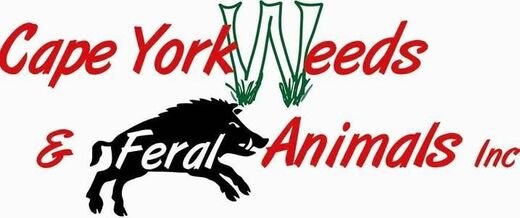Cape York Progressive P2P Grazing Network | Progress Report
Welcome to the Endeavour River Productivity Network. This project is funded through the state governments Extension and Education program and delivered in partnership by Cape York Weeds and Feral Animals, Cape York NRM and South Cape York Catchments.
• The project is piloting a new way of delivering extension services to farmers and graziers in the Endeavour and Normanby River catchments.
• The new extension model is called Focus Farm Peer to Peer extension model.
• The model comprises a Focus Farm initiative, one to one (1:1) producer consultations, facilitated group (peer to peer) learning and data sharing.
• Agricultural extension is about delivering the most up-to-date information and technology to industry. It is about enabling farmers and graziers to meet the challenges to make practice changes that lead to better business and environmental sustainability.
• Focus Farms provide producer groups with the opportunity to trial new innovation and technology before incorporating it into their own farm practice. Current land remediation trials being conducted on the Focus Farm involve evaluating low-cost high-impact gully erosion management techniques.
Facilitated Peer to Peer Learning
• This is simply a group of producers working together on common goals and sharing information for both private production and public benefit. Facilitated learning groups provide the most efficient means of coordinating access to specialist skills providers.
• The facilitator is often a local landholder with good industry knowledge and well connected to the extension network.
The Endeavour River Productivity Network
• Having been established, this producer group will trial new products and technologies (through Focus Farms), meet regularly to share knowledge with one another. Guest speakers and industry specialists may be invited to help solve local level issues and expand group knowledge and skills.
• Group Facilitator Trevor Meldrum (Cape York Weeds and Feral Animals Incorporated) is facilitating the group.
• We have kick-started the project however, it is expected that the group will vote to formally recognise future facilitators.
• Trevor, along with Oliver, has helped and will help organise group gatherings, source funding for specialist consultations and networked both regionally and cross-regionally to maximise the group’s exposure to current technology.
• Had steering committee meetings held at Cooktown with participating peer to peer members, CYWAFAI_INC staff and Regional Agricultural Landcare Facilitator, to schedule projects and develop operational works plans.
• We have also continued working with the signed-up landholders.
• The signed-up landholders include a mix of graziers and horticulturists who have stock as well
• This has consisted of helping them with their weed control on their properties. We have helped build up tremendous capacity within the landholders.
• As it is very wet, there was no point in trying to do control work on properties where we could not get into the paddocks. It was very boggy in most areas
• Through the small amount of peer to peer work already done, individual graziers and horticulturists have been commenting on how much better prepared they are to be able to communicate and share their knowledge of weeds and feral animal control. What they have shared so far has made them more effective already.
• An observation was made by all that this pilot project will be very welcome. All information will be gratefully received.
• At this stage they only have one liaison or extension officer to go for help, and that is Cape York Weeds and Feral Animals Incorporated’s, Trevor Meldrum.
• We will promote the project through attending several community events.
• The project will also be promoted at the upcoming Cape York Local Marine Advisory Committee meeting.
• Promotion will be done at the Cape York NRM Board meetings throughout the year.
• We took the took interested people to our work sites, to show them what we hope to achieve with the project, and how we have progressed.
We have regularly promoted the project on our social media sites
Facebook: www.facebook.com/pages/Cape-York-Weeds-and-Feral-AnimalsInc/805555096154233
Website: https://cywafainc.weebly.com/
Twitter: https://twitter.com/cywafaOverall, the completion dates listed in the contract project milestones are underway and planning is on track for successful delivery.
Conducted the follow up Steering Committee meeting for the Project via one-on-one face to face meetings on 17/01/2020. This builds upon previous steering committee meeting held late last year.
By working with the land holders, we completed their Property Pest Management Plans.
We have started to build up the experience and capacity of the landholders to carry out Weeds ID and chemical and non-chemical control methods for the weeds identified as a Priority on each of their Pest management. This included the declared weeds under the Biosecurity Act 2014.
Rivernook Peer to Peer Learning Site Area where work and Information sharing has already been carried out:
• Major weed species present were Sickle Pod, Lantana, Bauhinia, and Gamba Grass.
• Minor weed species present were Mossman Burr, Chinese Burr, Sensitive Weed, and Singapore Daisy.Cape York Weeds and Feral Animals Incorporated are working in conjunction with individual properties as a part of the strategic Peer to Peer Project in the South East Cape York Area. This includes all the productive land areas within Laura Valley, Cooktown, Endeavour Valley, Mt Amos and Rossville.
The main objective is to strategically improve the productivity of their properties, located in Cape York Peninsula.
The graziers and horticulturists are to be commended on their efforts and their willingness to help. They were keen to work as a team.
CYWAFA_INC, Cape York NRM, and Traditional Owners, are to be commended for their professionalism and willingness to get the job done.






